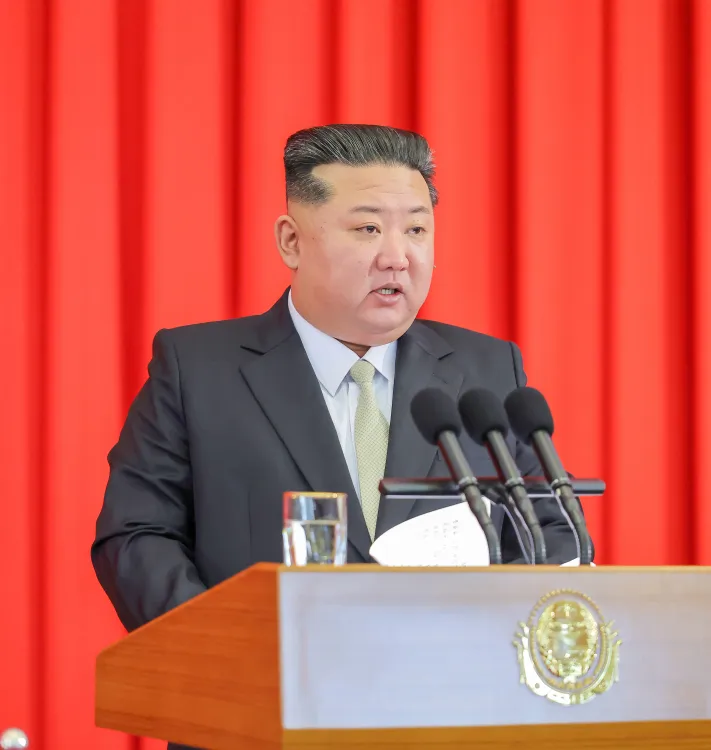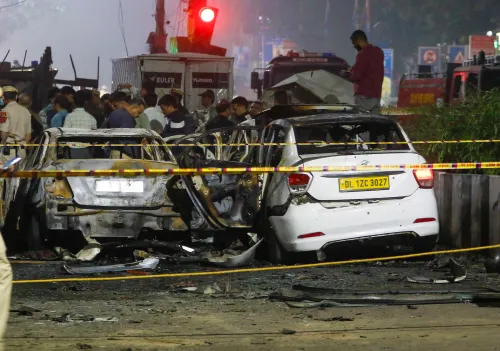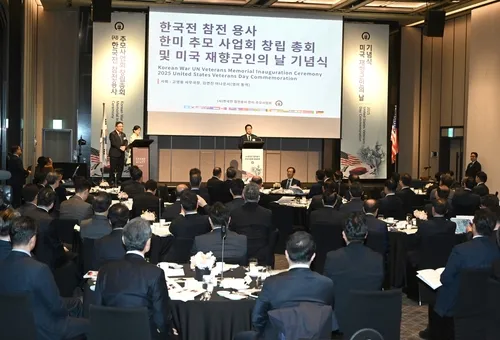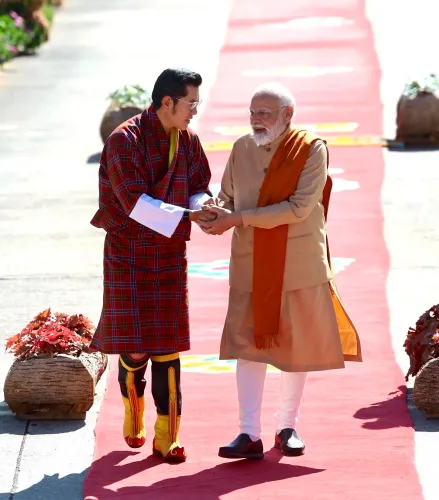Does North Korea Really Have Up to 2,000 kg of Highly Enriched Uranium?

Synopsis
Key Takeaways
- North Korea may possess up to 2,000 kg of highly enriched uranium.
- Experts indicate that 10-12 kg of uranium can create one nuclear bomb.
- The urgency to halt North Korea's nuclear program is paramount.
- Reviving North Korea-US dialogue is seen as a potential breakthrough.
- South Korea aims for peaceful relations with the North through dialogue.
Seoul, Sep 25 (NationPress) North Korea is estimated to have up to 2,000 kilograms of highly enriched uranium, as the nation has significantly sought to enhance its nuclear weaponry in recent years, according to South Korea's Unification Minister Chung Dong-young on Thursday.
The minister revealed this assessment during a press briefing, referencing publicly available evaluations by experts, which underscore the immediate need to halt North Korea's nuclear initiatives, as reported by the Yonhap news agency.
"It is critical to stop this immediately. Even now, uranium centrifuges at four sites in North Korea are operational, likely stockpiling nuclear materials," Chung stated.
He added, "Experts estimate that North Korea holds up to 2,000 kg of highly enriched uranium at levels of 90 percent and above," emphasizing that just 10 to 12 kg is sufficient to create one nuclear bomb.
Chung remarked that it is currently unfeasible to persuade North Korea to abandon its nuclear arsenal through international sanctions, suggesting that the revival of North Korea-US dialogues could act as a "breakthrough" in the stalled denuclearization efforts.
"It would be beneficial for North Korea-US talks to occur as soon as possible," he noted.
The anticipated resumption of discussions could also aid in revitalizing the strained inter-Korean relations, and the government will exert its maximum effort to create a conducive environment for negotiations between Pyongyang and Washington, he emphasized.
Chung's comments followed a recent address by North Korean leader Kim Jong-un, where he reiterated the regime's willingness to re-engage with Washington, provided that the long-standing demand for denuclearization is withdrawn.
Last month, US President Donald Trump expressed optimism about meeting Kim this year, fueling speculation that the two might convene during Trump's participation in the Asia-Pacific Economic Cooperation (APEC) summit, set for October 31-November 1 in Gyeongju, South Korea.
Nonetheless, Kim dismissed any discussions with Seoul and ruled out the possibility of unifying the Koreas.
In light of Pyongyang's resistance, the Lee Jae Myung administration remains dedicated to pursuing peace with North Korea through dialogue and collaboration.
In his recent address to the UN General Assembly, Lee emphasized the necessity to end the era of hostility on the Korean Peninsula, stating that Seoul holds no intention of engaging in aggressive actions.
In an interview with the BBC, Lee mentioned that Seoul would welcome a potential agreement between Trump and Kim to freeze North Korea's nuclear endeavors as a "practical option" toward ultimate denuclearization.
Meanwhile, Chung revealed that his ministry is in discussions with the defense ministry regarding the suspension of live-fire exercises and military field training near the inter-Korean border.
"The unification ministry believes it is justifiable to halt shooting drills and field training in areas close to the Demilitarized Zone even before reinstating the Sept. 19 agreement," he stated, referring to the now-suspended inter-Korean accord aimed at reducing border tensions.
Chung expressed skepticism about bringing two North Korean soldiers, captured by Ukrainian forces amid the conflict with Russia, to South Korea, citing opposition from Kyiv.
At present, South Korea and North Korea are recognized internationally as two distinct nations, but this does not signify a "permanent" division, the minister reiterated, reaffirming the official stance of ultimately pursuing unification with the North.









